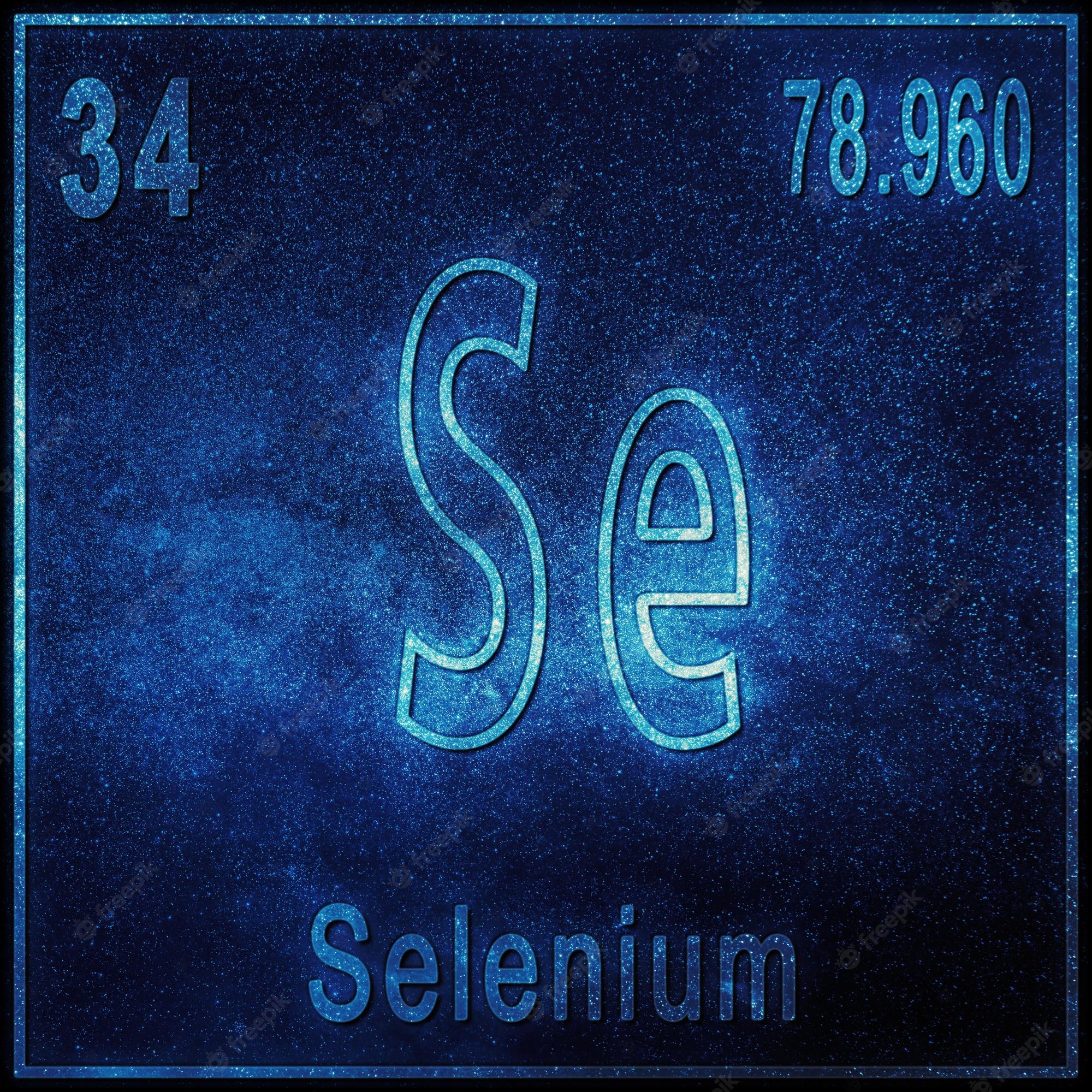 Selenium Deficiency in Systemic Lupus Erythematosus, Autoimmune Thyroid Disease, Sjörgen's Disease, and Other Autoimmune Diseases
Selenium Deficiency in Systemic Lupus Erythematosus, Autoimmune Thyroid Disease, Sjörgen's Disease, and Other Autoimmune Diseases
Selenium is a trace mineral. So, although selenium isn’t needed in particularly large amounts, that is by no means an indicator of its importance; selenium is an incredibly important trace mineral that is deficient in a large portion of the global population to varying degrees. Selenium deficiency can cause the following symptoms (among others not listed here):
- Depression and/or anxiety
- Confusion
- Muscle weakness
- Infertility (particularly in men, but also women)
- Thyroid dysfunction
- Headaches
- Nausea and/or vomiting
- Seizures
- Altered mental state
- Coma
- Lethargy
- Severe fatigue
Chronic and/or severe selenium deficiency is also linked to the development of these autoimmune diseases and other more serious health problems:
- Autoimmune thyroid disease
- Hashimoto’s thyroiditis
- Grave’s disease
- Hyperthyroidism
- Hypothyroidism
- Alzheimer’s disease
- Keshan disease (a kind of cardiomyopathy; note that selenium deficiency combined with infection with the Coxsackievirus B3 is the most likely cause of this disease)
- Kashin-Beck disease (a form of osteoarthritis)
- Autoimmune Addison’s Disease
- Systemic lupus erythematosus (SLE)
- Cystic fibrosis
- Multiple sclerosis
- Sjörgen’s Syndrome
- Behcet’s Disease
- Scleroderma
- Amyotrophic lateral sclerosis (ALS) / Lou Gehrig's Disease
- Autoimmune myalgias
- Polymyalgia rheumatica
- Rheumatoid arthritis
- Autoimmune myositis
- Cancer
- AIDS
- Hepatitis B and C
- Heavy metal poisoning
- Goiter
- Myxedematous cretinism (congenital hypothyroidism with mental and physical retardation caused by simultaneous selenium and iodine deficiencies)
- Hemorrhagic pancreatitis
- Severe sepsis
How Selenium Works in the Body
Selenium is converted into selenoproteins in the body once it is taken in via a supplement or a food. There are 25 total known selenoproteins, each with a different role in the body, but all requiring selenium in order to be produced and to do their jobs effectively. Some of the most important selenoproteins to know about when it comes to autoimmune disease are the glutathione peroxidases, the iodothyronine deiodinases, the thioredoxin reductases, and the selenoproteins P, W, and S. Below I discuss each of these in more detail.- Glutathione Peroxidases - There are 5 known glutathione peroxidases that contain selenium. These are antioxidant substances, and are required to reduce harmful ROS to water and harmless alcohols in the body. GPx2 is expressed in the intestinal lining and in the lungs, and GPx3 is expressed primarily in the thyroid and kidneys. One can assume that harmful ROS in these organs may cause tissue damage if the body is deficient in selenium and unable to manufacture these glutathione peroxidases. Glutathione peroxidases also catalyze the degradation of peroxides that are produced during the process that converts T4 to T3 (more on this below).
- Thioredoxin reductases - There are 3 thioredoxin reductases. TrxR1 and TrxR3 are electron donors, and can help regenerate small antioxidants that have been oxidized, such as vitamin C, vitamin E, alpha lipoic acid, and CoQ10. The thioredoxin reductases may also play an important role in the regulation of cell growth and survival.
- Iodothyronine deiodinases - These are ultimately responsible for converting thyroxine (T4), the inactive thyroid hormone, to triiodothyronine (T3), the active form of thyroid hormone. Iodothyronine deiodinase converts T4 to T3 by removing one iodine atom from the thyroxine, thereby creating triiodothyronine. The thyroid normally releases smaller amounts of activated T3, and somewhat larger amounts of T4 (which can be converted later on to T3). Without enough selenium to produce iodothyronine deiodinases, T4 that is released from the thyroid may not be able to be converted to T3. This can cause symptoms of hyperthyroidism. These are also responsible for the regulation of iodine homeostasis.
- Selenoprotein P (SEPP1) - This selenoprotein is produced in the liver, where a large portion of the body’s selenium is stored (the kidneys, thyroid, and pancreas also store larger amounts of selenium, as do the testes and seminal vesicles in men). SEPP1 is essential in order to ensure that glutathione peroxidases and thioredoxin reductases can do their jobs by supplying selenium to tissues throughout the body via the blood. It is also essential for homeostasis of selenium in the brain and testes.
- Selenoprotein W - Selenoprotein W is particularly sensitive to low selenium levels. It is found in the highest amounts in the heart and skeletal muscles, and protects the brain from damage and neuronal cell death caused by oxidative stress.
- Selenoprotein S - This selenoprotein is a part of the membrane of the endoplasmic reticulum (ER) in the cell. It regulates cellular response to ER stress, and removes and transfers misfolded proteins so that they can be degraded and excreted. Lack of selenoprotein S can result in altered gene expression. Specifically, too little of this selenoprotein can cause a polymorphism (a genetic change) where the guanine (G) allele at nucleotide -105 is replaced with an adenine (A) allele. This pattern has been observed to be particularly common in patients with Hashimoto’s thyroiditis, and may also be present in patients with preeclampsia, coronary artery disease, and gastrointestinal cancers.
Selenium Supplementation for Autoimmune Thyroid Disease
Autoimmune thyroid diseases like Hashimoto’s thyroiditis and Grave’s disease both have been proven to improve when patients are given supplemental selenium. Supplemental iodine (such as Lugol’s iodine or Iodoral, which both contain molecular iodine and potassium iodide) is one of the primary treatments for autoimmune thyroid disease that we recommend, but in the case of thyroid health, it’s important to also consider selenium. Selenium and iodine go together, especially when it comes to thyroid health, and it’s absolutely essential to supplement with both of these if you want to be successful in treating an autoimmune thyroid disease (or any other iodine-related health condition, for that matter).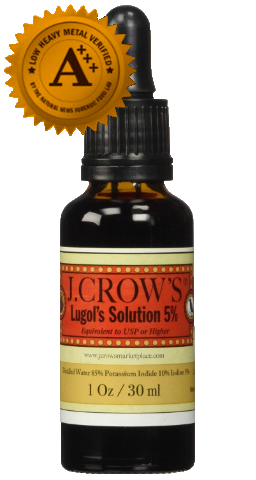
Severe selenium deficiency can ultimately lead to thyroid cell necrosis. When not enough selenium is present in the body, this means that the body cannot produce sufficient amounts of the antioxidant enzyme, glutathione peroxidase (GPx). The production and conversion of thyroid hormone leaves behind harmful ROS peroxides, which are normally negated by the antioxidant activity of GPx enzymes. Without GPx, the ROS peroxides can cause an increased rate of thyroid cell death, as well as the invasion of macrophages (immune cells present at the site of infections).
Selenium deficiency can also cause an elevation of T4 plasma concentrations since there will not be enough selenium to produce iodothyronine deiodinase. Supplementation of selenium in this case lowers T4 levels and subsequently increases T3 levels as the T4 is converted to T3.
In one group of patients with Hashimoto’s thyroiditis with mild selenium deficiency, supplementation with 200mcg of selenium per day over the course of 3 months improved the patients’ mood and quality of life. In the same study, researchers demonstrated that elevated thyroid peroxidase levels decreased by nearly 40% in these patients, with 9 out of 36 patients in the group ending the study with completely normal thyroid peroxidase levels.
Selenium has also been shown to have positive effects on Grave’s orbitopathy, a condition affecting patients with Grave’s disease where the eyeball(s) begin to protrude. Selenium supplementation in patients with this condition reduces pro-inflammatory markers and also suppresses eyeball protrusion, improves eye motility, and enhances patients' general quality of life. A different study on Grave’s disease in China observed that this particular autoimmune thyroid disease was significantly more prevalent in areas of China where the soil was selenium deficient in contrast with areas that had selenium-rich soil. Interestingly, this significant difference was only observed among the men in these communities; the percentage of women with Grave’s disease in these areas remained more or less the same regardless of selenium status.
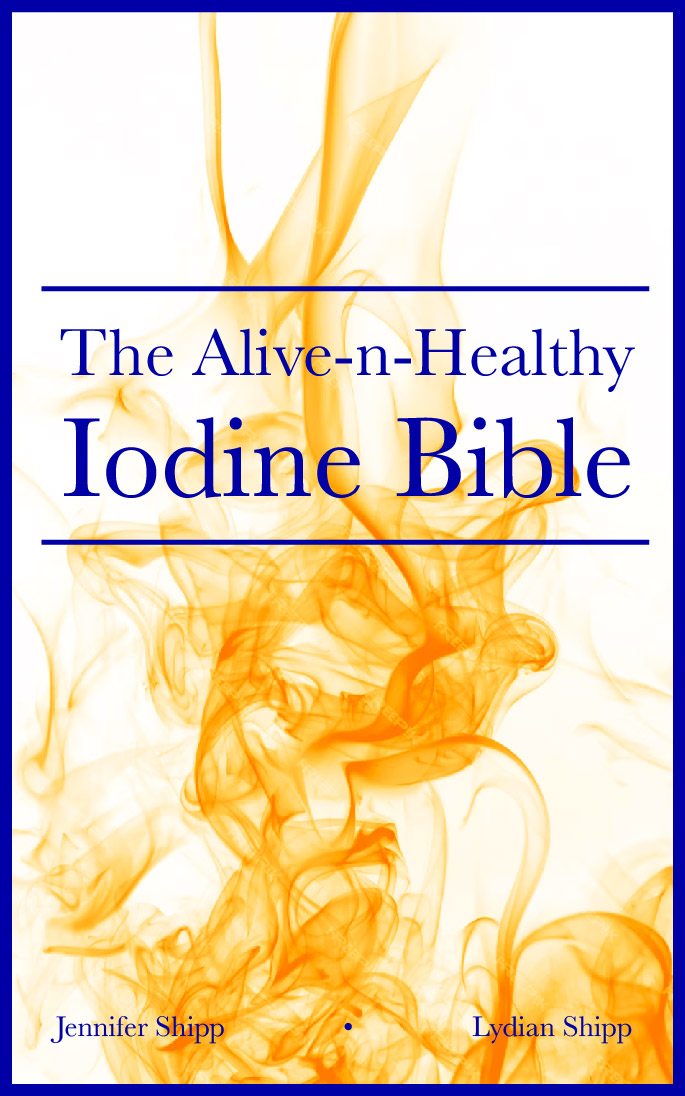
The AlivenHealthy Iodine Bible - Everything you need to know to get started taking iodine and more!
Selenium and Rheumatoid Arthritis
Rheumatoid arthritis has been found to worsen in cases where the patient has selenium deficiency. Individuals with rheumatoid arthritis (RA) have notably lower levels of glutathione peroxidase 3 (GPx3), selenoprotein P, and total selenium levels than the average person, indicating a deficiency in this essential trace mineral. The selenium deficiency often found in RA patients is connected with an increase in the number of pro-inflammatory genes in the body.A selenium deficiency may cause the development of rheumatoid arthritis in some cases, but it may also develop or worsen after RA manifests. In rheumatoid arthritis patients, selenium metabolism also becomes impaired, thus decreasing the body’s ability to absorb selenium from food and supplements. The synthesis of selenoprotein P in the liver is also impaired in rheumatoid arthritis patients, meaning that serum selenium levels decrease and other areas of the body are more likely to suffer from diminished selenium supply.
Patients with rheumatoid arthritis who are able to increase their selenium levels have decreased inflammatory activity and some reduction in symptoms. Since selenium also has some important antioxidant roles in the body via different selenoproteins, the oxidative damage seen in rheumatoid arthritis patients may also be able to be reversed through selenium supplementation in some cases. One study demonstrated that supplementation of 200mcg of selenium for 3 months significantly reduced the patients’ pain and the involvement of the joints in this condition.
The Role of Selenium Deficiency in Systemic Lupus Erythematosus (SLE)
In one survey of nearly 10,000 people, researchers observed a strong correlation between low selenium levels and a diagnosis of systemic lupus erythematosus. What this suggests is that selenium deficiency may play a role in the development of SLE, or at the very least it may put a person at a higher risk of developing SLE through other causes.Supplementation with selenium in lupus patients has been noted to reduce inflammation, as well as to improve cognitive function and relieve brain fog. As an immunomodulating nutrient, selenium also helps prevent excessive activation of B-cells, which are normally activated in response to pathogens and cancer cells. This is part of the way through which selenium can prevent inflammation.
Selenium Deficiency and Sjörgen’s Syndrome Polyneuropathy
In one study, about 22.4% of participants with Sjörgen’s syndrome demonstrated low plasma selenium concentration levels in contrast with only 1.7% of the control subjects exhibiting this sign of selenium deficiency. In the Sjörgen’s syndrome patients who had lower levels of selenium, an increased risk of polyneuropathy was also observed. These patterns were observed in a group of female subjects, but a group of male subjects with similar health profiles also exhibited the same kind of pattern in regard to an increased risk of polyneuropathy and decreased selenium levels. Therefore, supplementation with selenium may be able to specifically relieve symptoms of polyneuropathy in Sjörgen’s syndrome patients.How to Take Selenium
Selenium supplements can be taken in doses of up to 400mcg (micrograms) per day in adults older than 19 years and children between 14-18 years old. This is considered to the Tolerable Upper Intake level; taking more selenium than this can do more harm than good. Younger children should take a significantly lesser amount of selenium. Ages 1-3 may take 90mcg per day, ages 4-8 years may take up to 150mcg daily, and ages 9-13 years can safely take 280mcg daily. Infants should take less than this, and should not exceed a dose of 60mcg daily (infants between 0-6 months should only take 45mcg per day).Follow the indications below to increase your intake of selenium via diet and supplementation:
- Take 200-400mcg of selenium per day via a supplement. Also take a vitamin E supplement with this that contains D-alpha tocopherol (this is the natural form; avoid DL-alpha tocopherol since this is synthetic and not as effective). Iodine and selenium work well together, and an iodine supplement should also be included to enhance the efficacy of the selenium as well as to combat a very likely iodine deficiency.
- After recovery, or after you begin to see noticeable positive changes in your symptoms, reduce or maintain your selenium dosage to 200mcg daily as a maintenance dose.
- Choose selenium supplements that contain selenomethionine, the natural form of selenium, whenever possible. This form of selenium is 90% absorbed by the body and 34% is converted into free selenomethionine. It is most likely to increase plasma glutathione peroxidase levels in plasma in contrast with inorganic selenium supplements. In addition, the risk of selenium toxicity is lower when supplementing with selenomethionine than it is when supplementing with inorganic selenium. Sodium selenite and sodium selenate are both inorganic forms of selenium that may be found in commercial selenium supplements.
- Increase the selenium rich foods in your diet, including:
- Brazil nuts - Note that these are VERY high in selenium. Don’t eat more than 5 of these per day.
- Eggs
- Poultry, beef, and fish - Organ meats and seafood are especially high in selenium
- Whole wheat bread
- Beans, lentils, and other legumes
- As part of an antioxidant protocol, selenium combines well with vitamin E and vitamin C since it can help regenerate the oxidized forms of these vitamins and also potentiate (make stronger) their antioxidant activity. A zinc + copper supplement and an iron supplement can also be valuable to take with selenium, since these minerals are also important for the production of different antioxidant enzymes in the body.
There are no known drug interactions between selenium and pharmaceutical medications. Individuals of all ages and in all situations, including infants and young children, pregnant women, and the elderly, may supplement with this nutrient so long as they don’t exceed the upper intake levels noted above. People with Type 2 diabetes or who are at a significant risk of developing Type 2 diabetes should be aware, however, that some studies indicate that selenium supplementation may increase the risk of developing this condition (though the results are, overall, inconclusive, and in fact, other expert sources suggest that increased selenium levels may actually be a result of the development of diabetes rather than the cause of the diabetes).
People who are at particular risk of developing a selenium deficiency include the following:
- Individuals who live in an area with selenium deficient soil (in the US, these areas include the Northeast, Southeast, Northwest, and some Midwestern areas near to the Great Lakes)
- Vegans and strict vegetarians (especially when the foods these individuals consume were grown in selenium-deficient soils)
- People with HIV (supplementation with selenium in HIV patients can help prevent their risk of the infection developing into AIDS)
- Individuals who are receiving dialysis for kidney failure
- People with phenylketonuria, homocystinuria, and other similar diet-related diseases
- Patients with Crohn’s disease or other severe gastrointestinal issues as well as patients with maple syrup urine disease
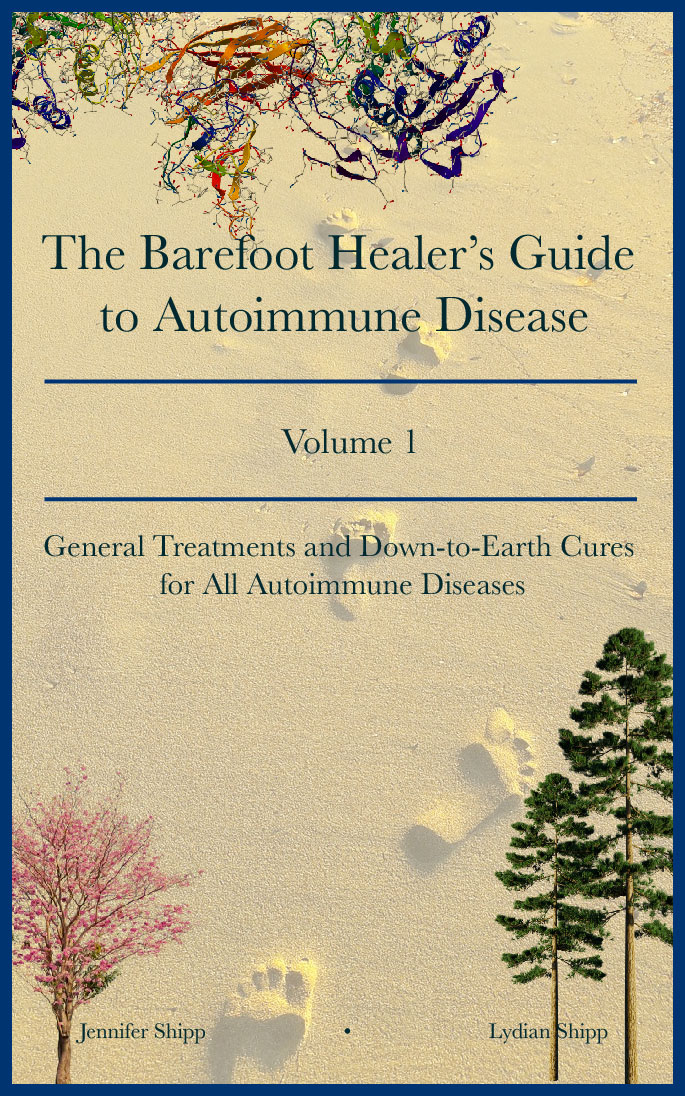
The Barefoot Healer's Guide to Autoimmune Disease, Volume 1 - BUY HERE!
Related Posts: https://alivenhealthy.com/2022/07/01/selenium-therapy-as-a-treatment-for-gallbladder-cancer-and-gallbladder-polyps/ https://alivenhealthy.com/2019/05/14/selenium-therapy-for-cancer/ https://alivenhealthy.com/2022/07/19/lugols-iodine-therapy-as-a-cure-for-parasite-infections-lyme-disease-and-autoimmune-disease/ https://alivenhealthy.com/2022/07/19/connect-the-nutrient-dots-understand-to-use-cds-mms-and-nutrition-to-cure-lyme-disease-autoimmune-disease-and-parasite-infection/ https://alivenhealthy.com/2022/05/03/nutritional-deficiencies-and-lung-disease-how-vitamins-and-minerals-play-a-role-in-the-development-of-respiratory-tract-problems/ https://alivenhealthy.com/2022/08/02/lithium-orotate-and-autoimmunity-essential-trace-mineral-for-autoimmune-disease-treatment/ https://alivenhealthy.com/2022/07/29/how-to-detoxify-the-body-and-heal-from-autoimmune-disease-cancer-and-other-serious-diseases/ https://alivenhealthy.com/2022/07/23/the-lyme-disease-family-tree-can-lyme-disease-be-misdiagnosed-as-an-autoimmune-disease/ https://alivenhealthy.com/2022/07/21/a-different-way-to-view-autoimmune-disease-symptoms-finding-the-autoimmune-control-mechanism/ https://alivenhealthy.com/2022/07/16/terminalia-chebula-herbal-cure-for-autoimmune-disease-and-toxoplasmosis-infection/Resources:

 Bronson Selenium 200 mcg – Yeast Free Chelated Amino Acid Complex - Essential Trace Mineral with Superior Absorption, 250 Vegetarian Capsules
Bronson Selenium 200 mcg – Yeast Free Chelated Amino Acid Complex - Essential Trace Mineral with Superior Absorption, 250 Vegetarian Capsules
 Solgar Yeast-Free Selenium 200 mcg, 250 Tablets - Supports Antioxidant & Immune System Health - Non-GMO, Vegan, Gluten Free, Dairy Free, Kosher - 250 Servings
Solgar Yeast-Free Selenium 200 mcg, 250 Tablets - Supports Antioxidant & Immune System Health - Non-GMO, Vegan, Gluten Free, Dairy Free, Kosher - 250 Servings
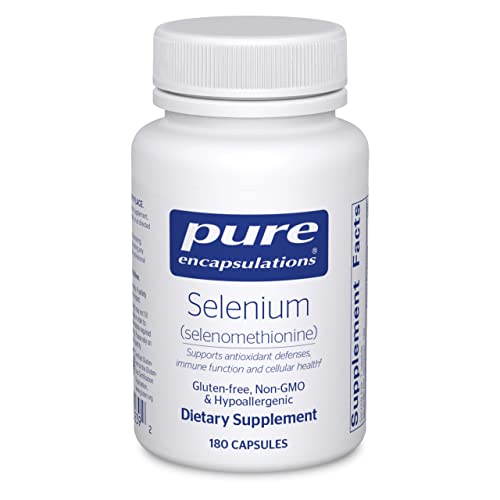 Pure Encapsulations Selenium - 200 mcg - for Healthy Cellular Function, Immune System & Antioxidant Defenses - Mineral Supplement - Vegan & Gluten Free - 180 Capsules
Pure Encapsulations Selenium - 200 mcg - for Healthy Cellular Function, Immune System & Antioxidant Defenses - Mineral Supplement - Vegan & Gluten Free - 180 Capsules
 Selenium - 200 mcg, Selenomethionine Form, 300 Servings - Vegan, Glass Bottle, Yeast Free - Sublingual Liquid Concentrate - Antioxidant, Supports Immunity, Thyroid Health (2 oz.)
Selenium - 200 mcg, Selenomethionine Form, 300 Servings - Vegan, Glass Bottle, Yeast Free - Sublingual Liquid Concentrate - Antioxidant, Supports Immunity, Thyroid Health (2 oz.)
 Nut Cravings - Raw Brazil Nuts, Unsalted, No Shell, Whole, Superior to Organic (32oz - 2 LB) Bulk Nuts Packed Fresh in Resealable Bag - Healthy Protein Food Snack, Natural, Keto Friendly, Vegan Kosher
Nut Cravings - Raw Brazil Nuts, Unsalted, No Shell, Whole, Superior to Organic (32oz - 2 LB) Bulk Nuts Packed Fresh in Resealable Bag - Healthy Protein Food Snack, Natural, Keto Friendly, Vegan Kosher




















